Powell advises students to be passionate
Alumna Rosephanye Dunn Powell, Ph.D., has been hailed as one of America’s premier composers of choral music. She has a diverse and impressive catalogue of works published by some of the nation’s leading publishers, including the Hal Leonard Corporation, the Fred Bock Music Company/Gentry Publications, Oxford University Press and Alliance Music Publications. Her compositions include sacred and secular works for mixed chorus, women’s chorus, men’s chorus, and children’s voices. Her style of composition is beautiful melodies, strong rhythmic emphasis, and rich harmonies.
November 27, 2021
“Your gifts will open doors for you, and if you are a genuine person, when that door opens, it will keep opening wider. If you have the talent and the skills and doors open but you don’t have the heart or the personality to relate to people, that door will only open with limitations.”
This quote, from the legendary Alabama State University alumnus Rosephanye Dunn Powell, Ph.D., reflects on her outlook on life and her relationship with the art of music as an instrument to inspire and influence. A woman with many titles, Powell is currently a music professor at Auburn University who composes music, a talent she has possessed for over 25 years.
A native of Lanett, Alabama, Powell was the second oldest of four children and the only daughter in the family. She was born to two former Alabama State University alumni, Ross and Rosa Dunn. Growing up, Powell had a plethora of activities to keep her busy, including playing basketball, running track, singing in the school choir, and reading. Music and sports competed for most of her attention in her early years.
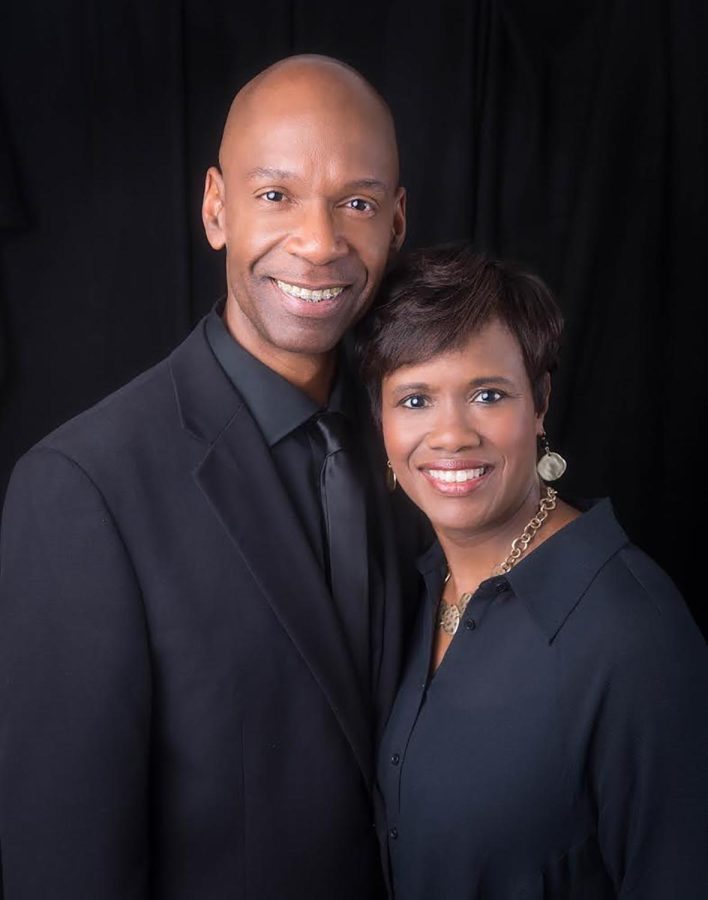
Powell attended West Point High School in West Point, Georgia, due to her father being the principal and her mom teaching at the school as well. It was at this high school that Powell found her love for music. She and three of her girlfriends started singing with each other and formed a gospel quartet that went by the name “Inspiration.” She also spent time playing piano at her church services, setting the groundwork for gospel’s significant influence on her.
After graduating from high school in 1980, Powell moved on to Alabama State University.
“I really had no choice because my dad’s thing was ‘You’re all going to ASU.’ He was on the Alabama State University board of trustees at that point, and it was ASU or bust,” Powell said.
After impressing on the basketball court in high school, Powell was given a basketball scholarship to come to ASU. However, after declaring music as her major and suffering an injury, she had to decide between basketball and music due to the dedication and time commitment each thoroughly required. She ultimately chose music, but she did spend some time as the student manager for the basketball team.
Her music curriculum took up a great deal of her time, but that did not mean Powell did not have some great memories from her time at ASU. Singing in the ASU gospel choir in a group called the “Young Hearts” was a memory she cherished. Another was singing in the choir during Christmastime.
“The choir at Christmastime would always do Handel’s Messiah, and we performed that in the gymnasium,” Powell said. “It was just an exciting time for all the alumni when they would come back and hear us sing that major work.”
The conductor of Handel’s Messiah was one of Powell’s favorite professors, Dean Otis Simmons. “He really did a great job of getting students focused,” she said. Another favorite of hers was Kay Pace, Ph.D. Pace was the piano professor and became a dean at one point as well. Powell built relationships with both teachers and learned lessons that she would apply throughout her life.
Speaking of relationships, Powell also met her soon-to-be husband at ASU. They were both music majors, and a budding relationship grew as they went further in life. Powell graduated in 1984 summa cum laude with a Bachelor of Music Education degree with a voice emphasis. Her next step was graduate school.
As for why she chose to go to graduate school, Powell said, “When I did my student teaching working on my music education degree at ASU, once I got into the classroom I enjoyed the experience, but I think doing the student teaching helped me to understand that I wanted to work at a level above secondary schools.”
This mindset brought Powell to Westminster Choir College in Princeton, New Jersey. While at Westminster, she studied vocal performance and pedagogy and would go on to get a master’s degree in those two concentrations in 1987. After graduating from Westminster, Powell taught at Georgia Southern University in Statesboro, Georgia, for three years. Then she went back to school, this time at Florida State University. Powell received her doctoral degree from FSU in vocal performance along with her husband, who received his doctorate in musical arts in 1993. The two began working together at Philander Smith College in 1993. Powell worked as a voice professor and the associate director of choral activities and reported to her husband, who was the director of choral activities.
When she was moving from place to place to obtain her educational credentials, she was met with challenges that forced her to adapt. She credits this ability to adapt to her time spent at ASU.
“Alabama State and the professors there challenged me to be my best and to always seek excellence. Neither of them were for mediocrity. Unlike how you can do today, they would go off on you if you were being mediocre. When I went to Westminster on the East Coast, it was intense, very different from the south. I had to work hard and make a lot of adjustments, but I think I was able to make those adjustments because I had learned to do hard work at Alabama State. I had learned to face challenges at Alabama State,” Powell said.
It was at Philander Smith College in Little Rock, Arkansas, where Powell started composing music. Her first song was called The Word Was God, and she composed it with her husband’s choir at the college. Every time they performed it, she was asked if it was published because others wanted to perform it with their own choirs. This inspired Powell to pursue publication.
She details this experience saying, “That’s the only reason that I submitted it for publication, and when I submitted it, I submitted it to 10 publishers and all of them, including Hal Leonard, which is the largest and internationally known publisher, accepted it. That blew my mind because that normally says that it’s strong work. That really opened the door for what I do.”
While at Philander Smith, the two of them began traveling the country, performing in front of audiences with their choir. Through these experiences, they learned to be in front of audiences on some of the grandest stages. Their worlds kept getting bigger and bigger the more they performed. It was these experiences that propelled them into their future endeavors.
Powell and her husband spent eight years at Philander Smith until they moved on to their current institution at Auburn University in 2001. She is currently the professor of voice and the coordinator of vocal studies teaching applied voice (voice lessons to applied voice majors) and vocal pedagogy (the science of the voice and how to teach voice), vocal literature (teaching interpretation and understanding of how art songs are composed to vocal music majors). She also conducts the women’s choir and co-conducts the gospel choir with her husband, who conducts the chamber choir, men’s choir, and concert choir.
Traveling the world has only increased with Powell’s popularity. Throughout the 2000s, she has composed many songs, and her influence has spread far and wide, extending past the United States into many other countries. She and her husband have traveled to Italy, Australia, and many Spanish-speaking countries. In order for her to be able to communicate with the natives in these countries, Powell does a lot of research on the places she travels to, going so far as to learning some of the different languages like French and Hungarian, which she says was the most challenging.
Even with all of this on her plate, Powell still finds time to teach, be a mother to her two daughters Camille Elise and Kaitlyn Elizabeth, and be a wife to her husband. Explaining how she balances these busy schedules, she says, “With composing and conducting, it is a challenge combining traveling with them. I conduct all-state courses around the country as well as go out and conduct my work. Trying to keep a balance between family, the university, and traveling is the most challenging thing. Limiting travel in order to give my students what they need here and to give my husband and my daughters what they need at home.”
In her downtime, Powell also takes part in fitness activities. She enjoys going to the gym, biking, and walking. When walking, she likes to sit and absorb the nature of parks and other areas. She finds herself getting lost in her thoughts during these times, giving her the opportunity to recharge after so much work. Reading is also one of her hobbies. She enjoys reading autobiographies, poems, memoirs, and biographies.
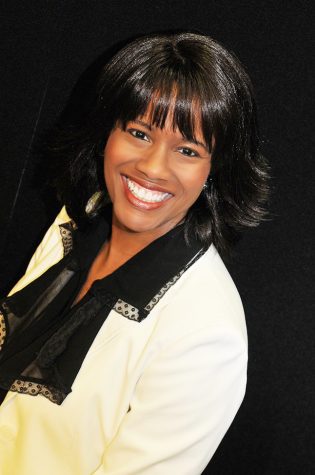
Through her work composing, conducting, and performing, she has made quite an influence on the lives of her listeners. She looks back on the influence of one of her most well-known works, called Still I Rise SSAA (2005), based on the poem by the legendary Maya Angelou of the same name.
“‘Still I Rise’ is one that I really enjoyed just because it has become a women’s anthem for a lot of women’s choirs. That was important because a lot of women say that that song had given them strength when they were facing challenges, from mental illness to suicide to cancer,” Powell said.
Those same women have made T-shirts with the lyrics on them. Many have been able to get some of the lyrics tattooed on their bodies as symbols of pride and perseverance. Coming from a family of educators, Powell has a passion for serving and seeing people’s lives change and it is essential to her as a composer. After seeing the impact that her parents and other educators had on herself and other young people, she wanted to do the same thing, but with music. Her approach to composing is different from some composers.
“Unlike some composers who sit down and say OK, I am going to compose a song and force the poetry into that song. I believe in reading poetry over and over, which gives me the rhythm for what the song will be. I read up on the composer and the poet so that I can know something about their lives and what was going on in their lives to make them write this particular poem,” Powell said.
She claims it is her job as a composer “to get my music to enhance what that poem has said and complement who that poet is or was.” Her goal is to bring the poem to life through the music so the audience can connect to it.
It is this kind of approach to composing that garnered her worldwide acclaim and a “Living Legend Award” presented by California State University African Diaspora Sacred Music Festival in Los Angeles in 2009. Powell considers the award one of her greatest honors. Despite getting an award of such prestige, she remains humble.
“I just try to live life day-to-day. I don’t try to walk around saying, ‘Oh, look at me and look at what I’m doing.’ So much that has happened in my life has happened from just not trying to chase down or make things happen,” she said.
Powell did not have her career path all planned out from the beginning. She was not a composition major as most composers are. She was not the best in music skills and theory, nor was she the best pianist. When she first started out, she had no plans to become the most known female African choral composer in the world. Instead, she just let the journey carry her.
“I got on a journey of serving people with music, and it just kept growing and growing until my first work got published and more got published. Then I received commissions (when people pay you to compose works for special occasions like premieres). As you get more commissions, you become known as a commission composer, which is the upper tier. The more commissions you get, the more people want you to do it. That’s the legend,” Powell said about where that journey took her.
Powell went on to express her gratitude, saying, “The living is that I am still here and to be honored by my own, that was really a most encouraging and fulfilling experience for me. Because most of the time, people wait until you’re dead.”
More recently, Powell released a song cycle called Then, Here and Now, a cycle of four original art songs based on African American spirituals. She took and composed the spirituals from I Want to Die Easy When I Die, There is a Balm in Gilead, Joshua Fought the Battle of Jericho, and Go Down Moses. This cycle of songs was inspired by the tumultuous year of 2020, with the death of and protests for George Floyd, the pandemic caused by COVID-19, and literature from the past that reflects the current times.
Coming from a strong background of composing and performing spirituals, Powell wanted these songs to not be exclusive to African Americans. She arranged these spirituals consciously so that people of all races could feel comfortable singing and performing them. She also altered some of the meanings of the spirituals in order to make them applicable.
When speaking about these songs, she says, “I wrote a commentary saying this song is for the here and now because everybody’s looking for some sort of medicine that will keep people from dying of COVID.”
She went on to further break down one of the songs, I Want to Die Easy When I Die. “I took a little bit of the spiritual melodies and rhythms, but for each of these songs, I gave them an original melody. Then I said the narrative was that it was a very hard death. George Floyd died. That was a very hard death, that people who died alone of Covid without family, some having a difficult time even breathing and in horrid pain died. That’s not the death I want. This song relates to now. I want to die easy when I die,” Powell said.
Each song encapsulates all of these themes into different names for the year 2020. Go Down Moses was called Oppression. Balm in Gilead was called Healing. I Want to Die Easy was called Dying. Joshua Fought the Battle was called Protest. They were meant to take people on a journey where all of these themes are fleshed out to help people cope with their own situations.
As she has gotten older, Powell has published more and more solo works than works for choirs. She has also started composing multi movements like the Pride of Jeremiah and Gospel Trinity, with one about the life of Harriett Tubman in the works. Each one of these has narrators. Powell hopes to lean more into that kind of performance as the years go on.
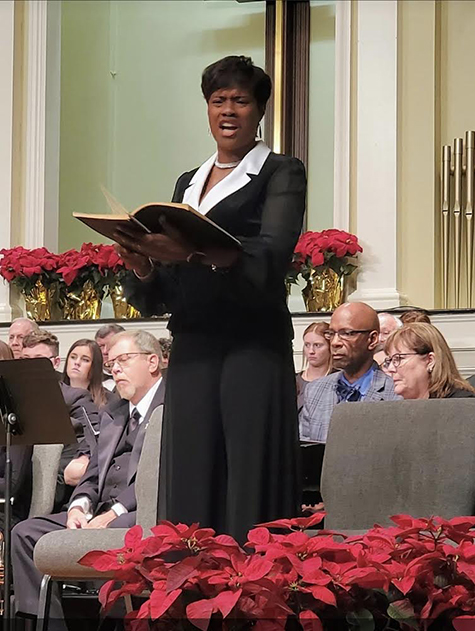
“The voice isn’t going to last forever, and as I am maturing and as people are hearing me narrate, they are asking me to come narrate more works. Hopefully, as I get older, I can see myself being onstage bringing to life other stage performances as a narrator,” Powell said.
She is no stranger to the unknown. She experienced this very early on as a composer. This time is no different. When she had fears about composing, her husband offered her encouragement. Despite the fact that she was not a trained composer, she became one of the most well-known composers and well-known female African choral composers of her generation. She has even spoken about orchestrating more. Powell is approaching this stage of her life with an open mind saying, “The door that opens next may be to try something I’ve never done before.”
Powell’s story represents the best of the best to come out of Alabama State University. Her consistent growth throughout her life and how she continues to evolve even after her many successes speaks to her incredible work ethic. With all of the challenges she faced, she has either overcome them or adapted to the situations. Her passion for her craft is inspiring and makes her influence that much stronger. She has touched so many people with the songs she has composed, the choirs she has conducted, and the many performances she has done. As the doors continue to open up for this ASU alumna, she will continue to walk through them.


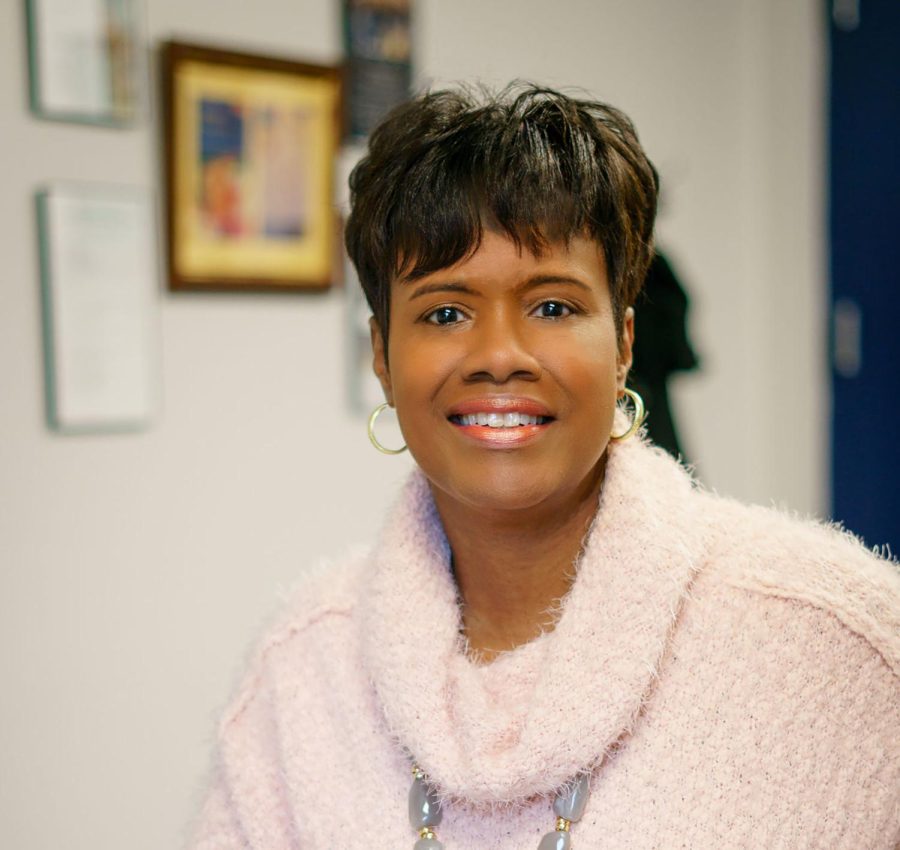






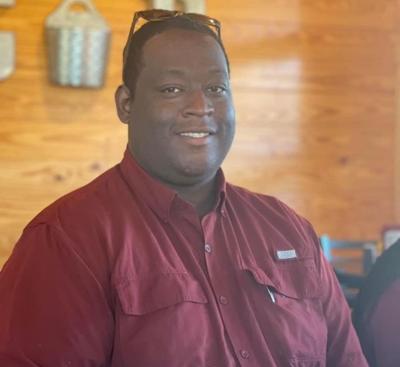

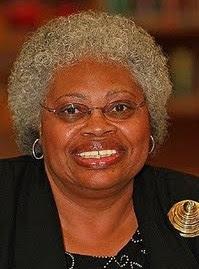
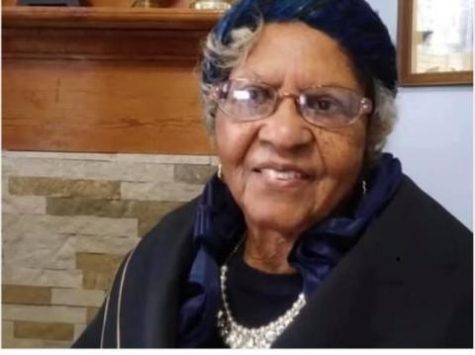


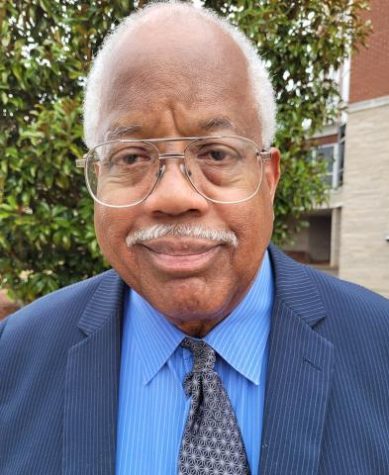

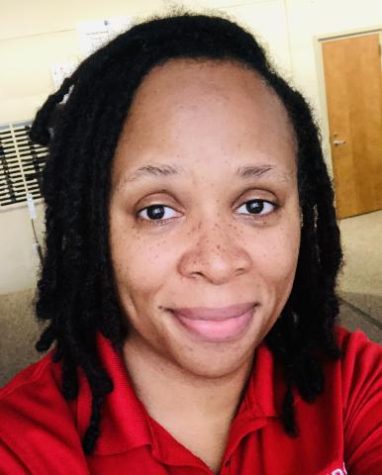
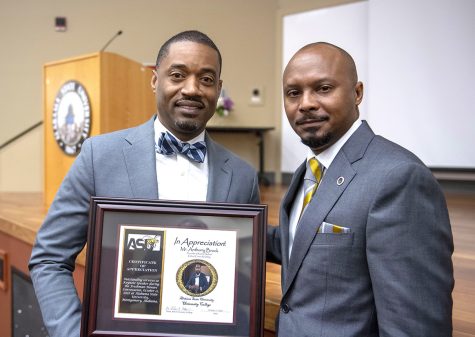
Walter Bush Jr • Dec 18, 2021 at 12:00 pm
I am so proud of these two musicians. They have taken their talents to another level. ASU music department have produced some phenomenal musicians and I’m honored to have known them. Keep striving and looking to hear more from you.